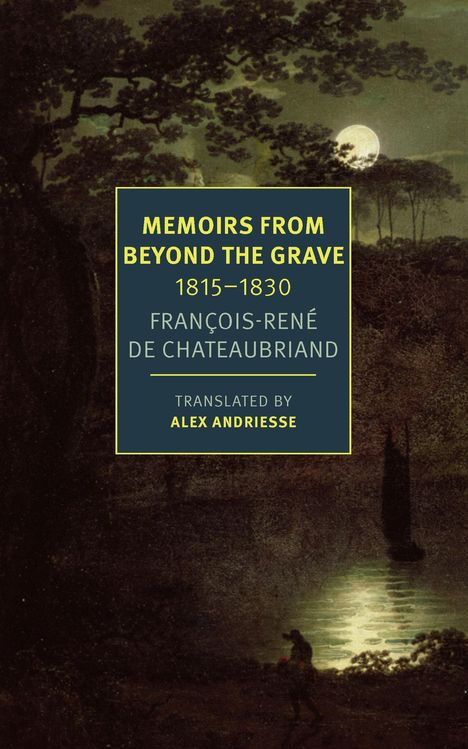François-Réne Chateaubriand: Memoirs from Beyond the Grave: 1815-1830, Kartoniert / Broschiert
Memoirs from Beyond the Grave: 1815-1830
(soweit verfügbar beim Lieferanten)
- Übersetzung:
- Alex Andriesse
- Verlag:
- New York Review of Books, 12/2025
- Einband:
- Kartoniert / Broschiert
- Sprache:
- Englisch
- ISBN-13:
- 9781681379616
- Artikelnummer:
- 12226214
- Umfang:
- 592 Seiten
- Gewicht:
- 367 g
- Maße:
- 202 x 128 mm
- Stärke:
- 30 mm
- Erscheinungstermin:
- 2.12.2025
- Hinweis
-
Achtung: Artikel ist nicht in deutscher Sprache!
Klappentext
The third part of the epic autobiography of Chateaubriand, the aristocratic Frenchman who lived through the beginning of the French Revolution and who would become the founder of the Romantic movement in Europe, now in a new, unabridged English translation---the first in a century.
In 1815---with the Napoleonic era at an end and royalty restored---François-René de Chateaubriand seemed poised, along with the Bourbon family he'd long supported, to wield unprecedented power. Already one of France's most celebrated writers, he now became an ambassador and statesman of the French kingdom. Yet as passionate about royalty as Chateaubriand was in principle, in reality he was a recalcitrant subject. A defender of the constitution and of freedom of the press, he quarreled constantly with Louis XVIII and Charles X and eventually tendered his resignation---just in time for the July Revolution, which put an end to Bourbon rule and allowed Chateaubriand to go back to praising the family, now safely exiled to the realm of the ideal.
In the third volume of Alex Andriesse's new translation of *Memoirs from Beyond the Grave,*Chateaubriand writes about international politics, a papal conclave, and the revolutionary strife of 1830 with undiminished flair. And he remains one of the great masters---perhaps unequaled in this---of literary digression. Readers will gladly accompany him on walks around Paris and Rome, as he reflects on storms and ruins, moonlight and mortality.

